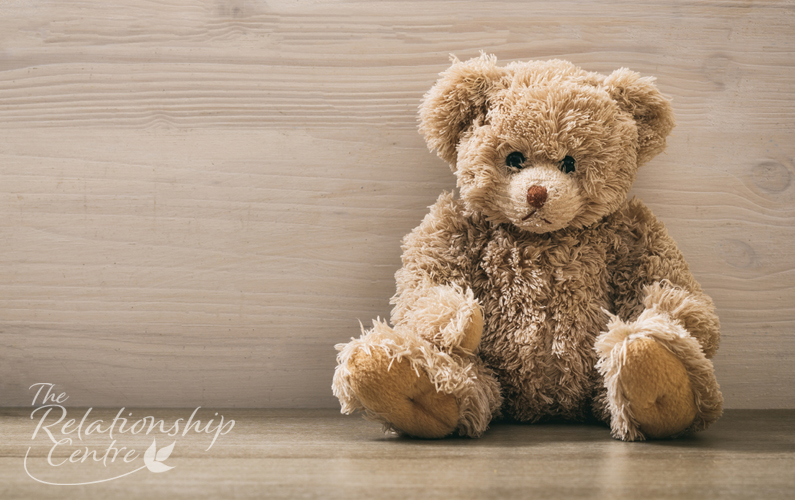When a couple loses a baby, it is a profound loss with a pain that is unimaginable. The world no longer makes sense; the world no longer seems fair or just.
You lose an entire lifetime that you began to envision from the moment your pregnancy was confirmed – all of the special milestones and moments that you longed to share with your baby. You also grieve for the loss of your own parenthood – the chance to be a mom and dad to this precious baby.
Grandparents also grieve the loss of their grandchild and they hurt for their children. Siblings feel the loss and confusion of the new baby they were ready to welcome. The pain of this loss extends throughout the whole family and it is so hard for grieving parents to know how to help their other children, when they barely know how to take care of themselves.
Parents are completely thrown off balance in a way that feels scary and overwhelming and they fear that this pain has no end. There is a clear distinction in life from – before the loss of our baby – and after the loss of our baby. Life can no longer feel the same – because someone so important and special is not here.
However, it is possible to engage in a process of healing to allow you to move forward. It will take longer than you want – but it is possible and you can find a way to hold the baby you didn’t get to bring home in your heart and to move forward in your life.
The reality is that grief cannot be avoided and it must be worked through in order to heal. Many different emotions will be experienced: anger, sadness, despair, fear, guilt and anxiety – and you will need support. Many people wonder if they are grieving the right way and if what they are feeling is normal but there is no right or wrong way to grieve the loss of your baby.
There are some stages of grief you will pass through:
Shock & Numbness – this is a normal response to overwhelming sorrow. It can last hours or days. It brings a feeling of numbness, of being stunned, a shutting down of usual feeling and thinking. Shock keeps you numb until you are ready to start to face this terrible tragedy.
Searching & Longing – as shock and numbness begin to wear off the pain will become more severe and reality slams into you. You cannot believe this has really happened to you. You search for answers and long to experience what could have been. You likely feel empty and lost. Thoughts of “what it”, “if only” and “I should have” are typical. These thoughts can become obsessive and you may think about them constantly. You wish you could change what happened. You may feel restless and filled with anxiety. You may think you are going crazy and are afraid to tell others how you are feeling. Take comfort – these feelings are normal and they are a temporary part of grief.
Disorientation & Disorganization – You are confronted with the reality that life will never be the same. You have a new sense that life is unfair. You may feel a loss of innocence in life and feel very vulnerable in the world. Disorganization and disorientation describe the extreme upheaval of normal thoughts and daily living patterns that occur at this stage. You may feel that you have hit rock bottom and wonder if you will ever come up for air. You may feel that there is no hope life will ever be good again. Everyday things are difficult to do. This is a time when you may feel profoundly depressed, sad, or angry.
Reorganization & Resolution – grief is something that happens without your choice. It is beyond your control. But recovery from grief does involve choice. There comes a time when you consciously make space to live again, even though there may still be pain. You choose to reorganize, regroup and get back into life. You accept the loss of your baby. You come to terms with what happened and choose to go on.
This does not happen all at once, and there will be detours –there will be good days and terrible days, but over time there will be more good days than bad. You find a way to laugh again and you realize you are going to make it through this. You will be forever different, but you will make it.
To begin to reorganize you must fully express your feelings and emotions as you grieve. The key to reorganization is acceptance. You choose to accept what you do not understand and do not want to accept. As you do this, you will have a new sense of stability and balance.
As you move through this phase, you will begin to gain strength from coping mechanisms that help you to move forward.
Here are a list of some strategies that will support your healing:
- Give yourself permission to feel whatever you feel
- Be kind and adjust your expectations
- Surround yourself with people you can by real with
- Allow others to take care of you
- Find safe people you can talk to about how you are really feeling. This may be family, friends, PAIL (Pregnancy And Infant Loss ) group, other loss families or a therapist.
- Attend to the basics of eating even though you may not want to; sleeping even if you need help from medication; and move a little, short walks outside
- Accept that the journey through grief is a process and that the only way to the other side is through; but no one should have to do the journey alone. It will be hard, and there will be suffering, but if you share the journey then you will not be alone.
Your heart has been shattered, your dreams have been broken but somehow with love, support, time and grace, healing is possible. You will be forever changed. Your baby will always be a part of you and your family. And acknowledging your baby, who is not at home with you, will be important as you grieve and recover.
by: Mary Joan Brinson MSW, RSW










